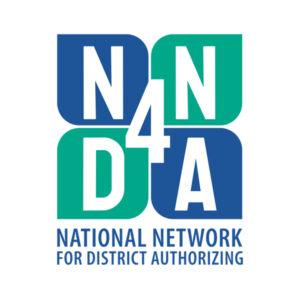A series of legal developments are moving forward that could fundamentally alter the public nature of charter schools. It is too early to assess the likelihood or full implications of these cases, but based on recent developments, it is possible that eventually, at least in some states:
- Religious groups could be eligible to operate charter schools;
- Charter schools could be religious in their operations and instruction, and act on their religious beliefs in actions related to admissions and enrollment, student discipline, staffing, curriculum, and discrimination; and
- Courts could declare that charters are not public schools, which could affect charters in various ways, including possibly removing federally-mandated constitutional rights from students, families, and staff in charter schools.
Some of these changes are already affecting practice in one state, while others will depend on cases pending in the courts. Charter school authorizers should educate themselves about these developments.
The NN4DA is partnering with NACSA on a webinar that will discuss these developments. The webinar is this Thursday, February 16, from 12:00 noon to 1:00 pm, MDT. Register here for the NACSA event.
The topic will also be addressed at the Colorado Charter School Authorizing Summit, Monday, February 27. The session is part of a day-long authorizer event co-sponsored by the Colorado Association of Charter School Authorizers (CASCA) and the Colorado Department of Education (CDE). The session on this topic is scheduled from 1:30 to 2:30 pm, MDT. Register here for the CACSA event.
You can review articles, opinion pieces, and analysis of these issues here.
Below is a brief summary of the developments.
Religious Groups Receiving Charter
On December 1, 2022, Oklahoma’s Attorney General (AG) issued an opinion that the Oklahoma charter school law’s prohibition against religious charter schools is unconstitutional based on a series of recent U.S. Supreme Court decisions. Ten other states’ Attorneys General have signed a letter in support of the Oklahoma AG’s interpretation. Meanwhile, AGs in other states believe the Oklahoma interpretation is incorrect all together or at least not applicable in states with different language in their state charter school law or state court rulings.
It is likely that action on the ground to approve charter schools operated by religious organizations will produce legal challenges that will clarify who is right. We probably won’t have to wait too long for that litigation.
This month, the Oklahoma Archdiocese applied for a charter to operate a virtual school. Whether it is approved or declined, somebody may challenge either decision in court. Such a case could eventually make its way through the court systems and have implications for other states.
Charters Acting on Religious Beliefs in Instruction, Staffing, and Admissions
Once a religious organization has a charter, it is also possible that other cases would allow religious charter schools to provide religious instruction or use their religious beliefs to justify discriminating in admissions and employment. For example, a religious charter might eventually discriminate against LGBQT students, families, or staff.
Charters Not Public Schools
A case from North Carolina could go further–determining whether charter schools are public schools at all. The U.S. Supreme Court is considering whether to hear a case that arose when a charter school was sued over its dress code, which requires female students to wear skirts. Students challenging the dress code prevailed in lower courts. The school has argued that it is not a state actor, and as such its students do not enjoy federal rights available to those being served by governmental entities.
The U.S. Supreme Court has not yet decided whether to hear the case, but it has asked for the U.S. Solicitor General’s input. Legal experts believe this request of the Solicitor General indicates the Supreme Court is likely to take the case.
Implications
As these issues make their way through the courts, long-held assumptions about charter schools could come up for debate. Charter school authorizers should track these issues and consider what the developments mean for their chartering.
It is too early to say what the implications of these changes would be, but they could affect a wide variety of issues, such as:
- Rights of students, families, and staff, including enrollment and free-speech;
- Charter employee access to public retirement programs; and
- Enforceability of charter contracts or authorizer policies and procedures.
Politically, the implications are also unpredictable, but potentially huge, including:
- Decreased support for charter schools among opponents of private school choice; and
- Charter moratoriums, caps, or other limits on new schools, particularly in states with unified Democratic control.
The NN4DA Collaboration Initiative
The NN4DA is leading a national project to support state-driven initiatives that bring school districts together to work on strengthening charter school authorizing. We are currently recruiting additional state partners.
Learn more about the NN4DA.org or contact the NN4DA Executive Director, Alex Medler at alex.medler@nn4da.org; or via phone at 720-635-8329.

